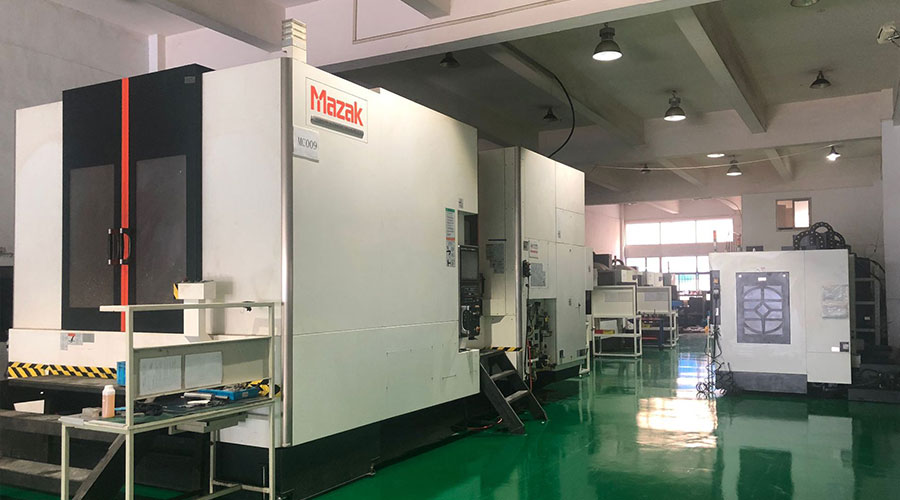Metal processing technology includes turning, milling, planing, grinding, clamp, wire cutting, CNC machining, heat treatment, forging, casting, electric spark, stamping, die-casting, etc.
![]()
Metal Processing
Metal processing refers to the production activity of human beings processing metal elements or materials with metal characteristics mainly composed of metal elements.
Metalworking, referred to as metalworking, is a process technology for processing metal materials into objects, parts, and components, including large parts such as bridges and ships, as well as minute components of engines, jewelry, and watches. It is widely used in different fields such as science, industry, artwork, and handicrafts.
Die Casting
Die casting is a metal casting process characterized by applying high pressure to molten metal using a mold cavity. Molds are generally processed from higher-strength alloys, and this process is similar to injection molding.
Sand Casting
Use sand to make a mold. Mold casting requires putting the finished parts or wood mold (mold) mold (mold) into the sand, filling the mold mold in the mold mold, and removing the mold mold out of the box.
In sand mold casting, the mold must be taken out before the metal is poured. The mold should be made of two or more parts; when the mold is made, the metal hole and the vent hole must be reserved when the mold is made to synthesize the pouring system. After pouring the metal liquid, keep it for an appropriate time until the metal solidifies. After removal, the mold will be damaged, so a new mold must be made for each casting.
Investment Casting
Dewaxing casting mainly includes processes such as pressing wax, wax repairing, tree formation, dipping, wax melting, molten metal pouring and post-treatment. Dewaxing casting is a wax mold made by casting a wax mold on a wax mold, and then coating the wax mold with mud, which is called a mud mold. After the clay molds are air-dried, they are baked into pottery molds. In the baking furnace, all the wax molds are melted, and only the pottery molds are lost. The ordinary clay mold has a pouring port, and then molten metal is poured from the pouring port. After cooling, the required parts are made.
The advantages of this method are:
- – The dewaxing casting process is simple, easy to use, and the production cycle is shorter. The parts can be cast within 24 hours after the wax mold is completed.
- – High casting precision and good surface quality
- – There are few equipments and short processing cycle, so the cost is greatly reduced;
- – Gypsum mold has low residual strength, easy to clean castings, no pollution, and low labor intensity
- – Especially for small precision parts, the advantages in all aspects are more obvious
Link to this article: Common Metal Processing Technology List
Reprint Statement: If there are no special instructions, all articles on this site are original. Please indicate the source for reprinting:https://www.cncmachiningptj.com/,thanks!
 Sheet metal, beryllium, carbon steel, magnesium, 3D printing, precision CNC machining services for heavy equipment, construction, agriculture and hydraulic industries. Suitable for plastics and rare alloys machining. It can turn parts up to 15.7 inches in diameter. Processes include swiss machining,broaching, turning, milling, boring and threading. It also provides metal polishing, painting, surface grinding and shaft straightening services. The production range(include aluminum die casting and zinc die casting) is up to 50,000 pieces. Suitable for screw, coupling, bearing, pump, gearbox housing, drum dryer and rotary feed valve applications.PTJ will strategize with you to provide the most cost-effective services to help you reach your target,Welcome to Contact us ( [email protected] ) directly for your new project.
Sheet metal, beryllium, carbon steel, magnesium, 3D printing, precision CNC machining services for heavy equipment, construction, agriculture and hydraulic industries. Suitable for plastics and rare alloys machining. It can turn parts up to 15.7 inches in diameter. Processes include swiss machining,broaching, turning, milling, boring and threading. It also provides metal polishing, painting, surface grinding and shaft straightening services. The production range(include aluminum die casting and zinc die casting) is up to 50,000 pieces. Suitable for screw, coupling, bearing, pump, gearbox housing, drum dryer and rotary feed valve applications.PTJ will strategize with you to provide the most cost-effective services to help you reach your target,Welcome to Contact us ( [email protected] ) directly for your new project.
Link to this article:Common Metal Processing Technology List
Reprint Statement: If there are no special instructions, all articles on this site are original. Please indicate the source for reprinting.:Silicone And Casting,Thanks!^^